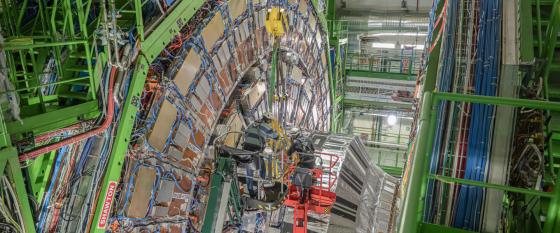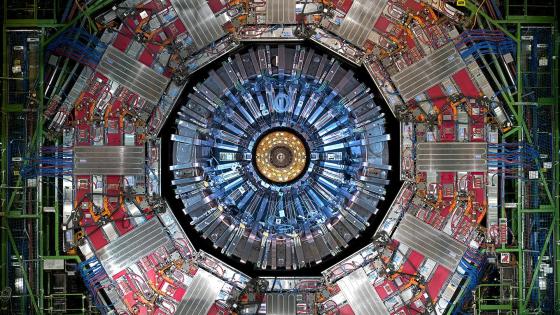CMS is a high energy physics experiment at CERN's LHC accelerator. LHC provides collisions of protons (and even heavy ions) at very high energies. In such collisions numerous particles are produced in conditions close to those present immediately after the origin of the universe. The particles or their decay products are reconstructed by analyzing their passage through appropriate instruments (detectors). The study of particles produced in LHC collisions allows to better understand the fundamental interactions and to try to answer questions such as the origin of mass, the existence or not of further dimensions of space-time, the nature of the so-called dark matter, the reason for the disappearance of antimatter and others.
CMS is one of the largest scientific collaborations ever; more than 4000 physicists and engineers from universities and research institutions in 41 countries participate in the experiment.

The Genoa group has been involved in the construction of the superconducting magnet of CMS, in collaboration with Ansaldo di Genova, and is currently active in the analysis of new algorithms for the reconstruction of charged particle traces, in the integration of new simulation methods of various processes and in the study of particles decaying in pairs of quark tops (the heaviest elementary particle discovered so far) and in the study of the properties of the quark top itself. For the detector upgrade in view of the high-luminosity data taking, the Genova Group is involved in the construction of a part of the new central tracker, made of innovative solid-state detectors.
The CMS experiment is co-financed in Italy by the National Institute of Nuclear Physics (INFN).



